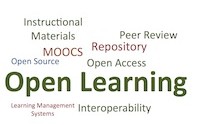
Can Computers Foster Human Users’ Creativity? Theory and Praxis of Mixed-Initiative Co-Creativity
This article discusses the impact of artificially intelligent computers to the process of design, play and educational activities. A computational process which has the necessary intelligence and creativity to take a proactive role in such activities can not only support human creativity but also foster it and prompt lateral thinking. The argument is made both […]














